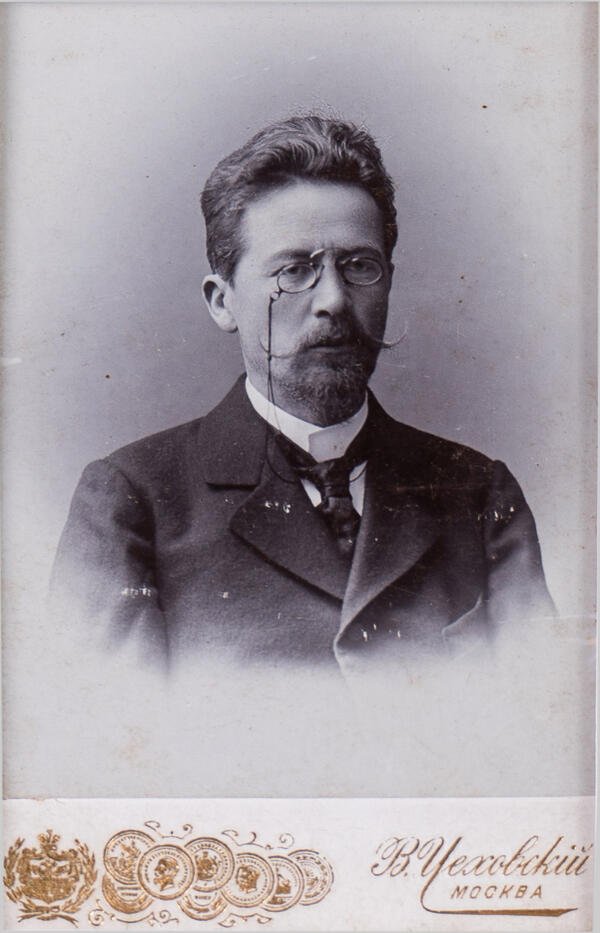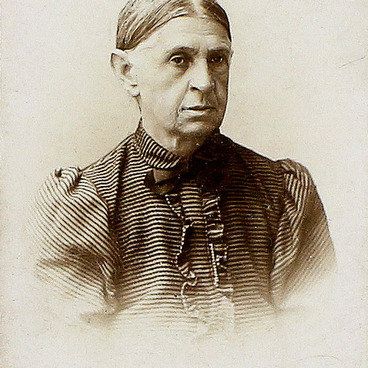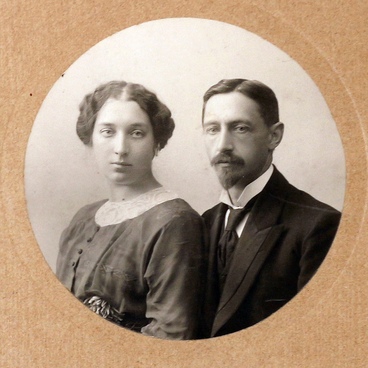Anton Chekhov was Ivan Bunin’s favourite contemporary writer. Bunin wrote in his lyric-autobiographical novel “The Life of Arsenev”: “A New Story by Chekhov! There was something in one form of this name that I was just looking at the story – I could not even begin to read it out of the jealous pain of the pleasure that I felt”.
The writers got to know each other by correspondence in 1891, when Bunin, then a novice author, asked Anton Pavlovich for a review of his poems and stories.
The classics first met in 1895, and, as Bunin himself admitted, he “had no such relationship with any of the writers as Chekhov. There has never been the slightest dislike in all time”. And Chekhov, although he was ten years older than Ivan Alekseevich, always treated him as an equal.
Since 1901, Bunin began to regularly visit Chekhov’s dacha in Yalta, became friends with the playwright’s relatives – his mother Evgeniia Iakovlevna and sister Maria Pavlovna. Ivan Alekseevich was always a welcome guest in the Chekhovs’ house, almost a family member.
Bunin described Chekhov in such a way: ‘In Moscow I saw a middle-aged man, tall, slender, easy-going; he met me friendly, but so simply that I took this simplicity for being cold. In Yalta I found him to have changed a lot: he had lost weight, his face darkened, he was moving slower, his voice was muffled. But, in general, he was almost the same as in Moscow: friendly, but restrained, he spoke quite lively, but even simpler and more concisely and during the conversation he thought about something of his own, allowing his companion to catch the transitions in the hidden current of his thoughts, and always looked at the sea through the pince-nez glasses, slightly raising his face. The morning after the meeting on the quay I went to his dacha. I remember very well this sunny morning that we spent in his garden. Since then, I have been visiting him more and more often, and then I was always truly welcome in his house. Along with that, his attitude towards me changed and it became more heartfelt, simpler…’.
During the last year of his life, in 1953, Bunin worked on a large book of memories of Chekhov, in which he described in detail his meetings and conversations with the playwright. It was his tribute to a friend whose death in 1904 was very difficult for the writer. His wife Vera Muromtseva-Bunina remembered that on the day of his death Ivan Alekseevich asked her about Chekhov’s date of birth. This is how his book “About Chekhov” begins: “The metric certificate states that Chekhov was born on the 17th of January. Meanwhile, Anton Pavlovich writes in a letter to his sister (January 16, 1899): “Today is my birthday, I am thirty-nine years old”.
The writers got to know each other by correspondence in 1891, when Bunin, then a novice author, asked Anton Pavlovich for a review of his poems and stories.
The classics first met in 1895, and, as Bunin himself admitted, he “had no such relationship with any of the writers as Chekhov. There has never been the slightest dislike in all time”. And Chekhov, although he was ten years older than Ivan Alekseevich, always treated him as an equal.
Since 1901, Bunin began to regularly visit Chekhov’s dacha in Yalta, became friends with the playwright’s relatives – his mother Evgeniia Iakovlevna and sister Maria Pavlovna. Ivan Alekseevich was always a welcome guest in the Chekhovs’ house, almost a family member.
Bunin described Chekhov in such a way: ‘In Moscow I saw a middle-aged man, tall, slender, easy-going; he met me friendly, but so simply that I took this simplicity for being cold. In Yalta I found him to have changed a lot: he had lost weight, his face darkened, he was moving slower, his voice was muffled. But, in general, he was almost the same as in Moscow: friendly, but restrained, he spoke quite lively, but even simpler and more concisely and during the conversation he thought about something of his own, allowing his companion to catch the transitions in the hidden current of his thoughts, and always looked at the sea through the pince-nez glasses, slightly raising his face. The morning after the meeting on the quay I went to his dacha. I remember very well this sunny morning that we spent in his garden. Since then, I have been visiting him more and more often, and then I was always truly welcome in his house. Along with that, his attitude towards me changed and it became more heartfelt, simpler…’.
During the last year of his life, in 1953, Bunin worked on a large book of memories of Chekhov, in which he described in detail his meetings and conversations with the playwright. It was his tribute to a friend whose death in 1904 was very difficult for the writer. His wife Vera Muromtseva-Bunina remembered that on the day of his death Ivan Alekseevich asked her about Chekhov’s date of birth. This is how his book “About Chekhov” begins: “The metric certificate states that Chekhov was born on the 17th of January. Meanwhile, Anton Pavlovich writes in a letter to his sister (January 16, 1899): “Today is my birthday, I am thirty-nine years old”.



